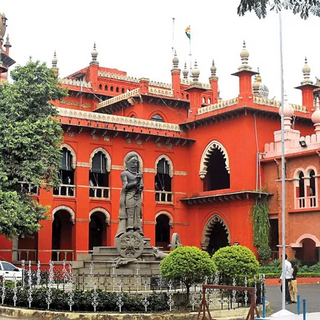
Know Your Rights: Maternity Leave
The HR head of a multinational corporation explains employed women’s rights during pregnancy.

In Know Your Rights, we simplify the rights you’ve been given, so you know how to exercise them.
The Maternity Benefit (Amendment) Act 2017 was introduced to protect women’s employment, and their and their children’s well-being, by offering them paid absence and related benefits during and after pregnancy. We sat down with the Human Resources head of a Mumbai-based multinational company to come to grips with the law and answer some of the most frequently asked maternity leave-related questions.
Does the number of children I already have affect the duration of my maternity leave?
Yes. If you’re giving birth to your first child, you’re entitled to 26 weeks. If you are giving birth to your second child, you’re also entitled to 26 weeks. But after the birth of two children, you are only legally entitled to 12 weeks of maternity leave. However, leave extensions depend on the HR of every organization and the circumstances of the mother and the baby.
Can women who adopt avail of the Act’s benefits?
Yes. If the baby you’ve adopted is under the age of three months, you are entitled for a maternity leave of 12 weeks.
What about women who become a parent via surrogate?
A commissioning mother (the biological mother who uses her egg to create an embryo that is then implanted in another woman) is also entitled to a maternity leave of 12 weeks from the day the child is handed over to her.
How long do I have to have been employed by a company to be entitled to maternity leave benefits?
To be eligible to avail of maternity benefits, a woman must have worked at least 80 days in an organization over a period of one year before her expected date of delivery.
Am I entitled to full-time pay during my maternity leave?
If you’re an employee who has completed at least 80 days in an organization within the span of one calendar year, your leave will be awarded with full pay.
Are only big companies required to offer maternity leave benefits?
The Act is applicable to both public and private sector organizations that employ 10 or more people. Companies and organizations with fewer than 10 employees are not required by law to offer maternity leave, though women have the right to ask such employers for maternity leave.
What should I expect from my company’s HR?
The Act requires every organization to inform a female employee of her rights under the Act at the time of her appointment and give the information in writing over an e-mail.
Related on The Swaddle:
Maharashtra Extends Maternity Leave for Government Employees to 360 Days
Can I divide the maternity leave before and after childbirth?
Yes. How you take 26 weeks depends on you. As per the law, you may begin your pregnancy leave any time in eight weeks before delivery but you can’t take more than that preceding your due date. If you’re bearing a third child, your pre-delivery leave can only last one and a half months.
What if I want to extend my maternity leave?
The Act does have a work-from-home provision that can be availed of after 26 weeks. But again, depending on the nature of the work and on terms mutually agreed upon with your employer, whether and how you can use that option may vary. You’ll have to check with your office and HR towork that out.
Am I entitled to full-time pay during an extension?
Extensions are generally considered leave without pay.
Am I entitled to any maternity-related benefits upon my return to work?
For all organizations employing 50 or more employees, it’s mandatory they provide access to a crèche, and grant employees (male or female) permission to visit their child there up to four times during the day.
What if I’m a transgender man who has become pregnant — am I entitled to any parental leave?
Unfortunately, the rules are framed within a very heteronormative paradigm. They currently overlook the lesbian, gay, bisexual, transgender, intersex community, and their parenting.
Anubhuti Matta is an associate editor with The Swaddle. When not at work, she's busy pursuing kathak, reading books on and by women in the Middle East or making dresses out of Indian prints.
Related


The Vicious Cycle of Sexism in the Indian Court System
